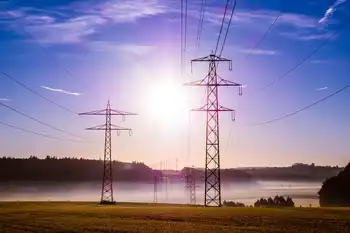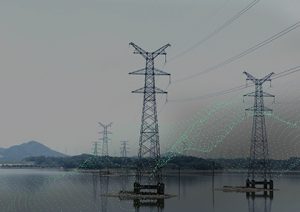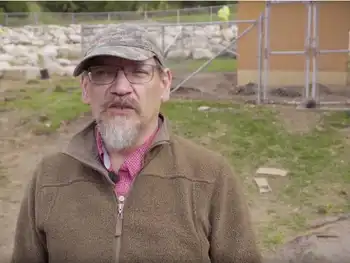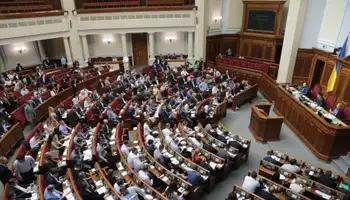Canada ends 3--year ban on atomic co-operation with India
NEW DELHI, INDIA - Canada offered urgent help to India's coastal nuclear installations in the wake of December's tsunami, setting aside a 30-year ban on atomic co-operation between the two countries, Prime Minister Paul Martin has revealed.
"In fact, within a matter of hours after the tsunami, the Canadian AECL, our atomic energy corporation, in fact contacted the Indian government to say that if there was anything that we could do to help that we were there, and wanted to participate and wanted to help," Martin told reporters recently. By the time the Canadian offer was transmitted, the Indian nuclear reactor north of Chennai (formerly Madras) in tsunami-hit Tamil Nadu state had already been shut down safely, a Canadian government official said. The offer was made in the context of emergency co-operation for civil nuclear operations, "but it wasn't needed," the official noted.
Emerging from a meeting here with his Indian counterpart, Prime Minister Manmohan Singh, Martin told a joint news conference that Canada had swung into action because "we have a longstanding relationship with India — a great history with India."
Martin quickly caught himself yesterday, tempering his effusive words in his next breath when he acknowledged "there have been some differences of opinion, but I am sure that over time that we can work this out."
In fact, nuclear ties between the two countries were frozen in 1974 when India announced to the world that it had used Canadian technology to test a nuclear explosive device in violation of its previous pledges.
The news from New Delhi 30 years ago embarrassed and embittered Ottawa, which formally cut off any further co-operation on the nuclear front in 1976. Undeterred, India continued to operate its CANDU reactors and open additional "made-in-India" nuclear plants derived from Canadian technology, including the Madras Atomic Power Station (MAPS) that started producing power in the mid-1980s.
Martin stressed that this was an exceptional time and Canada offered a helping hand on a matter of public safety because of the tsunami:
"Certainly, at the time of this great tragedy we came forth and said, `If there's anything we can do, we want to help,'" he said, as Indian officials listened attentively on the sidelines of the news conference.
But Martin's explanation was clarified later by Atomic Energy of Canada Ltd., which said it had not been directly involved in contacting the Indian authorities — Ottawa handled the communications directly.
"AECL did not contact the Indian government following the tsunami," said Ian Dovey, the Crown corporation's manager of media relations. In fact, the offer was transmitted by the Department of Foreign Affairs, he said, adding the formal ban on routine nuclear co-operation remains in place.
"Canada does not have a bilateral relationship to engage in nuclear co-operation with India," Dovey said.
Only one of the two 220-megawatt nuclear reactors was in operation when waves lashed the MAPS facility in Kalpakkam, 70 kilometres north of Chennai, on Dec. 26. Seawater surged into the pumphouse, which is used to cool the reactors, triggering sensors that automatically shut down the reactor.
There were no casualties reported at the plant, although 30 people died in the local residential township operated by India's Department of Atomic Energy (DAE) in Tamil Nadu. The MAPS complex includes facilities for spent nuclear fuel and a reprocessing plant which India says were not affected.
At their joint news conference recently, Martin hailed India's response to the tsunami at home and abroad, notably its rapid deployment of naval vessels to help other affected countries like Sri Lanka and Indonesia. More than 10,000 people died in India, mostly in eastern Tamil Nadu, and another 6,000 are missing and presumed dead, primarily in the isolated Andaman and Nicobar islands.
New Delhi initially declined international offers of help for its own people, saying it had sufficient resources to respond on its own turf.
It has also discouraged foreign dignitaries, including Martin and U.N. Secretary-General Kofi Annan, from visiting tsunami-hit areas.
Asked directly by an Indian reporter whether Canada had been rebuffed in its offers of relief assistance, Martin chose his words carefully and dodged the question.
"Canada offered to all of the affected nations our help, and obviously in a number of countries, that offer has been taken up," he said, leaving India's rejection unspoken.
But he stressed Canada would help India with the long-term task of devising an early warning system for future tsunamis, which could cost hundreds of millions of dollars. A Canadian tsunami expert is in New Delhi now to help with "brainstorming" on the issue.
Singh welcomed the offer, telling reporters "we have agreed to work together along with other like-minded countries in developing an international tsunami early warning system."
Related News
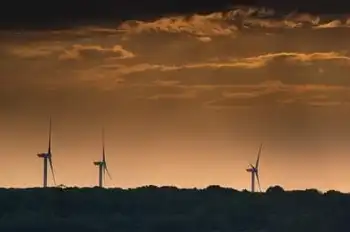
Amazon Announces Three New Renewable Energy Projects to Support AWS Global Infrastructure
SEATTLE - Amazon has announced three new renewable energy projects as part of its long-term goal to power all Amazon Web Services (AWS) global infrastructure with renewable energy. These projects – one in Ireland, one in Sweden, and one in the United States – will deliver wind-generated energy that will total over 229 megawatts (MW) of power, with expected generation of over 670,000 megawatt hours (MWh) of renewable energy annually. The new projects are part of AWS’s long-term commitment to achieve 100 percent renewable energy for its global infrastructure. In 2018, AWS exceeded 50 percent renewable energy for its global…

